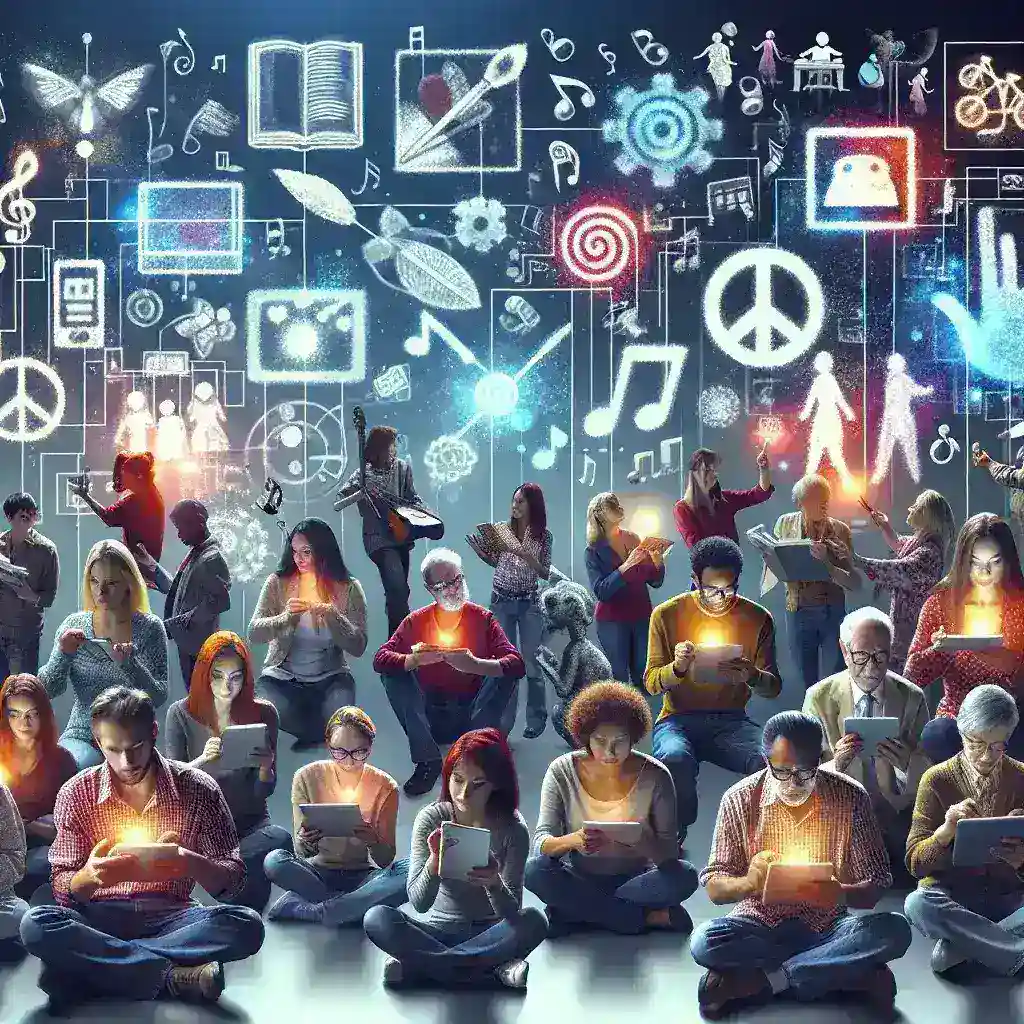The Power of Social Media in Shaping Culture
Social media has transformed the way we communicate, connect, and share information. It has also played a significant role in shaping cultural trends and movements. In the past, traditional media platforms such as newspapers, radio, and television were the primary sources of information and opinion. However, with the advent of social media, anyone with an internet connection can become a content creator, influencer, or advocate for social change.
The Influence of Social Media on Cultural Trends
Social media platforms like Facebook, Instagram, Twitter, and TikTok have become powerful tools for driving cultural trends. These platforms allow users to share their thoughts, opinions, and experiences with a global audience in real-time.
One of the main drivers of cultural trends on social media is virality. When a piece of content, such as a video, meme, or hashtag, goes viral, it spreads rapidly across different platforms, reaching millions of people within seconds. This viral spread amplifies the visibility and impact of cultural trends, making them more significant and influential.
Furthermore, social media platforms provide a space for individuals to connect with like-minded people and form communities around shared interests. These online communities can bring people together geographically dispersed but united by a common cause, belief, or interest. They play a crucial role in shaping cultural trends and mobilizing collective action.
Social Media and Cultural Movements
Social media has also been instrumental in propelling and organizing cultural movements. Movements such as #MeToo, #BlackLivesMatter, and #ClimateStrike gained immense traction and worldwide attention through the power of social media.
These movements are fueled by user-generated content and the ability to create and share personal stories, photos, and videos. Social media platforms serve as virtual meeting places where activists, supporters, and allies can come together, raise awareness, and demand change.
The Role of Influencers and Digital Activists
Another critical aspect of social media’s impact on cultural trends and movements is the rise of influencers and digital activists. Influencers are individuals who have developed a significant following on social media and have the power to shape opinions and behaviors. They can leverage their platforms to endorse products, inspire fashion trends, or advocate for social causes.
Similarly, digital activists utilize social media to amplify their messages and mobilize supporters. They can quickly spread awareness about important issues, galvanize online communities, and drive real-world action.
The Future of Social Media and Cultural Influence
As social media continues to evolve, its impact on shaping cultural trends and movements will only grow. With the rise of new platforms and technologies, we can expect further democratization of influence and the ability for anyone to make their mark on cultural conversations.
However, it is essential to recognize that not all cultural trends and movements originating on social media are positive or beneficial. The rapid spread of misinformation, online hate, and harmful ideologies is also a concerning aspect of social media’s influence on culture. As users and consumers of social media, we must navigate these platforms critically, question information, and promote responsible usage.
In conclusion, social media has proven to be a powerful force in shaping cultural trends and movements. It has democratized the flow of information, amplified voices, and connected people across borders. By understanding and harnessing the potential of social media, we can contribute to positive change, foster inclusivity, and shape a more progressive and equitable cultural landscape.

